Links to external sources may no longer work as intended. The content may not represent the latest thinking in this area or the Society’s current position on the topic.
Science to enable the circular economy
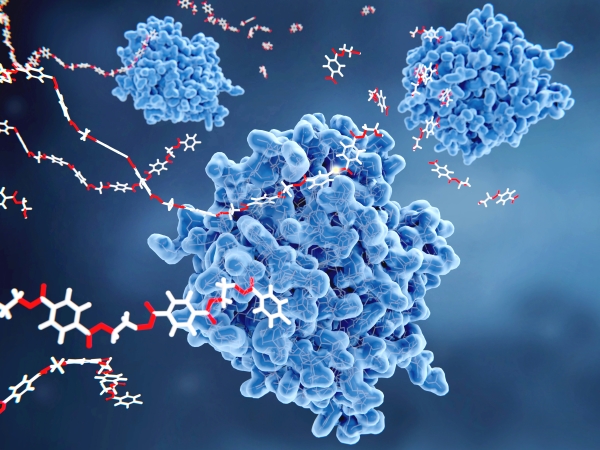
Scientific discussion meeting organised by Professor Matthew Davidson, Professor Richard Catlow FRS, Professor Adrian Mulholland and Professor Graham Hutchings CBE FRS.
For society to be sustainable, realising circular flows of molecules and materials will be fundamental to delivering the circular economy. This meeting brought together scientists and engineers to highlight efforts to meet the formidable challenge of 'keeping the molecules in play' by addressing important global challenges such as using waste carbon dioxide, harnessing biotechnology and eliminating plastics pollution.
Recorded audio of the presentations will be available on this page soon after the meeting has taken place. Meeting papers are available in an issue of Philosophical Transactions of the Royal Society A.
Organisers
Schedule
Chair
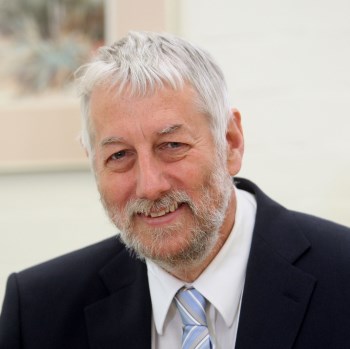
Professor Graham Hutchings CBE FRS, Cardiff University, UK

Professor Graham Hutchings CBE FRS, Cardiff University, UK
Graham Hutchings, born 1951, studied chemistry at University College London. His early career was with ICI and AECI Ltd where he became interested in heterogeneous catalysis initially with oxides and subsequently with gold catalysis. In 1984 he moved to academia and has held chairs at the Universities of Witwatersrand, Liverpool and Cardiff and currently he is Director of the Cardiff Catalysis Institute. He was elected a Fellow of the Royal Society in 2009, and he was awarded the Davy Medal of the Royal Society in 2013.
| 08:05 - 08:30 |
TBC

Dr Mike Muskett, BP, UK

Dr Mike Muskett, BP, UK |
|
|---|---|---|
| 08:45 - 09:15 |
Manufacturing chemicals with light: any role in the circular economy?
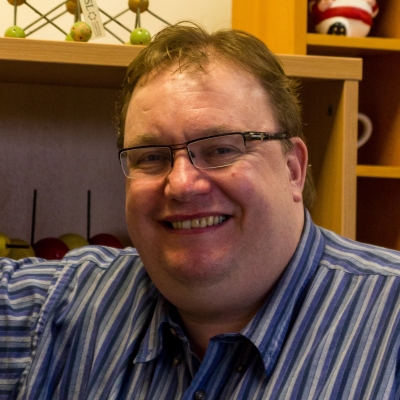
Professor Michael George, University of Nottingham, UK

Professor Michael George, University of Nottingham, UKMike George is Professor of Chemistry at the University of Nottingham. He obtained his PhD at The University of Nottingham and following a Royal Society–STA Japan postdoctoral Fellowship with Professor Hiro-o Hamaguchi at the Kanagawa Academy of Science and Technology (KAST) he returned to Nottingham initially as an Experimental Officer and then was promoted through to Professor of Chemistry in 2003. His early work focussed on the development and application of time-resolved infrared (TRIR) to characterise organometallic intermediates and elucidate reaction mechanisms. More recently, his work also aims to use continuous photochemistry and electrochemistry to transform how chemicals are manufactured by minimising the amount of chemicals, solvents, and processing steps needed to construct complex molecules by exploiting light and/or electricity to promote more specific chemical transformations and cleaner processes. Recent awards include the Meggers Award from the Society of Applied Spectroscopy (2016), Camellia Award from the Ningbo Municipal Government (2016) and the United Nations Industrial Development Organisation (UNIDO) Bronze Award for Research in Chemical Leasing (2018). |
|
| 09:00 - 09:05 | Welcome by the Royal Society and Matthew Davidson | |
| 10:00 - 10:30 |
The mechanisms to achieve a circular economy
The natural world is a beautiful and intricate system of intertwined and overlapping materials ecosystems. As humans, our understanding of the various interrelationships is only at the most basic level. One important reason why these naturally interdependent cyclic systems exist with exquisite complexity is because of the very fact that they all co-emerged over hundreds of thousands of years in the presence of one another. Evolutionary forces drove symbiotic relationships by selecting for and against mechanisms and materials that were conducive to the success of the entire multi-component matrix. As human society seeks to create a circular economy, we unfortunately have the disadvantage that our various industrial “species” have developed with a level of independence, essentially unaware of adjacent processes. We are forced into a position of creating connectivities that were not part of the considerations in the original design. Obviously this creates a daunting challenge. While there have been some examples of the circular economy designed and deployed in many industrial settings, the vast majority of industrial products and processes continue to exist disconnected and unsustainable over the long run. The pathway to create most of these technological ecosystems will require the inventive application of green chemistry (the molecular level mechanistic underpinnings of sustainability). Nature creates materials of such exquisite structural complexity and diversity that humans may never be able to mimic them. Nature’s elegance is even more astounding when one considers the fact that most chemistry in the biological world is carried out at ambient temperature and pressure using water, for the most part, as its reaction medium. For society to become truly sustainable, the way we manufacture, use and repurpose materials must change dramatically. This presentation will describe John Warner’s mechanistic considerations of materials design and illustrate their application through recent R&D examples from the Warner Babcock Institute for Green Chemistry. Examples from pharmaceuticals, personal care, construction materials and textiles will be included. 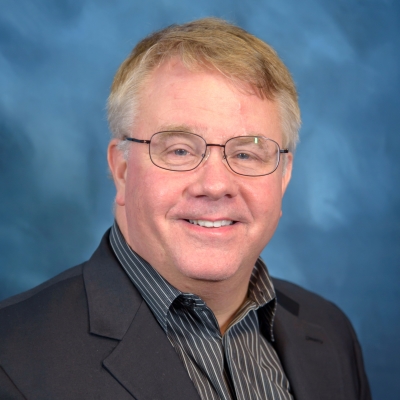
Dr John Warner, CEO & President Warner Babcock, USA

Dr John Warner, CEO & President Warner Babcock, USAThe Warner Babcock Institute for Green Chemistry (WBI) is an independent 42,000 sq ft research laboratory in Wilmington, Massachusetts fully equipped with state-of-the-art chemistry and engineering equipment. Prior to starting WBI in 2007, John Warner was tenured full professor of Chemistry and Plastics Engineering at the University of Massachusetts. Warner has received awards as an academic (Presidential Award for Excellence in Science, Mathematics & Engineering Mentoring – President G W Bush & NSF, 2004), industrial chemist (Perkin Medal – Society of Chemical Industry, 2014), inventor (Lemelson Ambassadorship – Lemelson Foundation & AAAS) and for governmental chemicals policy (Reinventing Government National Performance Review – Vice President A Gore & EPA, 1997). While a senior research group leader at the Polaroid Corporation (1988-1997), Warner coauthored the defining text for the field of Green Chemistry with Paul Anastas and codified the 12 Principles of Green Chemistry. Warner is on the advisory panel for the Ellen MacArthur Foundation’s New Plastics Economy, has been elected a full member of the Club of Rome, and is an advisor for Parley for the Oceans where in 2016 he helped create the technology for the Adidas Parley Recycled Ocean Plastics Shoe. He has served as sustainability advisor for several companies including Dow, P&G, Apple, Levi Strauss, Nike, Biogen, Pfizer, and Steelcase. With nearly 200 patents across more than 75 patent families, he has worked with over 100 fortune 500 companies helping to invent commercially relevant (high performance and appropriate cost) green chemistry technologies across all sectors of the chemical industry. His chemistry inventions have served as the foundation for several new companies, examples include: Collaborative Medicinal Development (ALS Therapy, Phase II Clinical Trials), Hairprint (hair color restoration), Collaborative Aggregates (Delta-S and Delta-Mist, asphalt warm mix, rejuvenator, & spray coat), Lowlight Indoor Solar Energy devices for IoT and BIPV, Formaldehyde and Isocyanate Free wood composite adhesive, and Lithium Cobalt Battery recycling technology. In 2007 Warner cofounded the nonprofit organization Beyond Benign with Amy Cannon. Collocated at the WBI labs in Wilmington, MA, Beyond Benign creates curricula and training for K-12 and university educators to incorporate concepts of green chemistry an sustainability to improve STEM education. |
|
| 10:30 - 11:00 | Coffee break | |
| 10:45 - 11:15 |
Catalyst design as key elements of an efficient use of renewable carbon resources
Renewable carbon feedstocks such as biomass and CO2 present an important element of future circular economy. Especially biomass as highly functionalized feedstock provides manifold opportunities for the transformation into attractive platform chemicals. However, these resources require novel paradigms in process design. Fossil feedstocks are processed in stationary gas-phase processes at elevated temperature. On the contrary, biorefineries are based on processes in polar solvents at moderate conditions to selectively deoxygenate the polar, often thermally instable and high-boiling molecules. Considering CO2 as a resource, the selective valorization at moderate reaction conditions requires tailored catalysts joining the design criteria known from molecular and heterogeneous catalysis. With regard to “green electrons” provided by renewable energy technologies, also dynamic (electro)catalytic processes become attractive as key technology of a throughout circular economy. Herein, novel concepts in catalyst design will be discussed focusing on solid molecular catalysts for CO2 activation, novel biomass transformations as well as the future role of a potentially electrified biorefinery. Examples comprehend: (1) the selective reduction of CO2 over solid molecular ruthenium catalysts to formic acid and the reverse reaction for hydrogen generation on demand; (2) the design of novel value chains based on biogenic carboxylic acids and (3) and electrochemical transformation of biogenic carboxylic acids to promising fuel mixture as well as monomers such as acrylate and adipic acid, respectively. 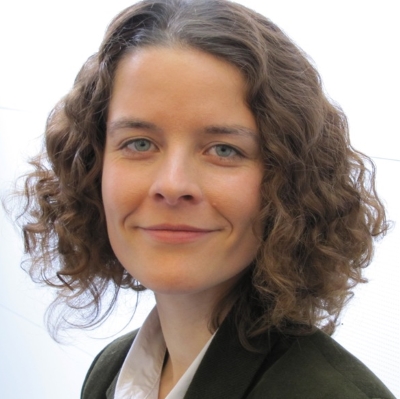
Professor Regina Palkowits, Institut für Technische und Makromolekulare Chemie, Germany

Professor Regina Palkowits, Institut für Technische und Makromolekulare Chemie, GermanyRegina Palkovits is Full Professor for Heterogeneous Catalysis & Chemical Technology at RWTH Aachen University. She graduated in Chemical Engineering from Technical University Dortmund in 2003 and carried out her PhD under supervision of Professor Ferdi Schüth at the Max-Planck-Institut für Kohlenforschung until 2006. Afterwards, she joined the group of Professor Bert Weckhuysen at Utrecht University as postdoctoral fellow. In 2008, she returned as a group leader to the Max-Planck-Institut für Kohlenforschung and since 2010 she has been Professor at RWTH Aachen University. Her research focuses on the design of catalysts and processes for the efficient valorisation of renewable resources. |
Chair
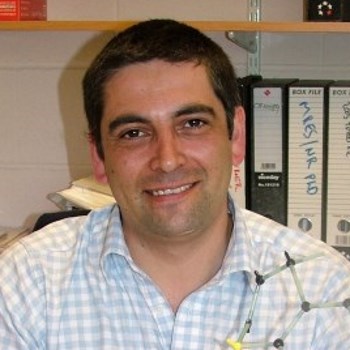
Professor Matthew Davidson, University of Bath, UK

Professor Matthew Davidson, University of Bath, UK
Matthew Davidson is Whorrod Professor of Sustainable Chemical Technologies and Director of the Centre for Sustainable Chemical Technologies at the University of Bath, UK. His research focuses on the application of molecular chemistry and catalysis to sustainable chemical processes such as manufacture of renewable fuels, chemicals and plastics. He graduated in Chemistry from the University of Wales, Swansea and received a PhD from the University of Cambridge. Following a Research Fellowship at St John’s College, Cambridge, he held Lectureships in Chemistry at the University of Cambridge and Durham University before being appointed to a Chair of Chemistry at Bath in 1999. He is a Fellow of the Royal Society of Chemistry and a previous recipient of its Harrison Memorial Prize.
| 12:15 - 12:45 |
Seed and microalgae oils as feedstocks for monomers and polymers
The feedstocks employed and the further fate of a material after its useful lifetime cycle are obvious decisive parameters for the overall environmental impact and feasibility of an economy. Projections suggest that while crude oil consumption for the transportation sector may reach its peak in the next two decades, demand as a feedstock for chemicals will continue to increase. This is driven by the demand for polymers, which fulfill a myriad of functions in modern technologies. An alternative renewable feedstock is plant oils, namely seed or microalgae oils. However, traditional utilizations of plant oils to generate monomer building blocks for polymers often lose a considerable amount of the feedstock as waste. This can be overcome by advanced catalytic reactions that incorporate the entire length of the feedstock’s fatty acid chains. The latter also imparts the resulting polymers' properties beneficially in that they crystallize in a polyethylene-like fashion. Unlike traditional polyethylene, they contain potential break points in the polymer chains which can enable a slow degradation and impart a desirable non-persistent nature. 
Professor Stefan Mecking, University of Konstanz, Germany

Professor Stefan Mecking, University of Konstanz, GermanyStefan Mecking studied chemistry at RWTH Aachen, and received a PhD degree with Willi Keim in 1994. After a postdoctoral stay with Maurice Brookhart in Chapel Hill, North Carolina he joined the Hoechst Company in Frankfurt. He moved on to the University of Freiburg for a Habilitation in Macromolecular Chemistry. Since 2004 he is full professor at the University of Konstanz. Honours and awards include a Feodor-Lynen-Fellowship, the BASF Catalysis Award, Otto-Roelen-Medal, Karl Ziegler-Guilio Natta Lectureship and most recently an ERC Advanced Grant. His research on functional-group tolerant polymerization catalysis addresses new concepts for high performance and non-persistent materials, and renewable feedstocks. Stefan Mecking served as an elected member of the academic senate of the University of Konstanz, and as Dean of the Faculty of Science. He is vice-speaker of the collaborative research center SFB1214 on Materials from Anisotropic Particles, and member of the board of the German Catalysis Society. |
|
|---|---|---|
| 12:55 - 13:25 |
Renewability is not enough: sustainable synthesis of biomass-derived monomers and polymers
In ages of depleting fossil reserves and an increasing emission of greenhouse gases, it is obvious that the utilization of renewable feedstocks is one necessary step towards a sustainable development of our future. In order to develop truly 'green' approaches, using renewable resources is insufficient. The available feedstocks rather have to be used in a sustainable fashion by combining as many of the principles of green chemistry as possible and by accessing and comparing the sustainability of chemical transformations. Within this contribution, new approaches for the synthesis of monomers as well as polymers from plant oils, lignin and carbohydrates will be discussed, thereby highlighting developed sustainable (catalytic) modification strategies. The focus of this presentation will be on novel approaches towards the functionalisation of cellulose and lignin, including new solubilisation and catalysis concepts as well as the use of multicomponent reactions. 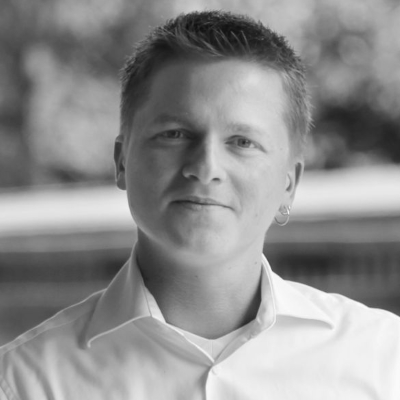
Professor Michael A R Meier, Karlsruhe Institute of Technology, Germany

Professor Michael A R Meier, Karlsruhe Institute of Technology, GermanyMichael Meier has been a full professor at the Karlsruhe Institute of Technology (KIT), Germany since 2010. He received his diploma degree (MSc) in chemistry in 2002 from the University of Regensburg, Germany and his PhD under the supervision of Professor Ulrich S Schubert from the Eindhoven University of Technology, The Netherlands in 2006. His research interests include the sustainable use and derivatisation of renewable resources for polymer chemistry as well as the design of novel highly defined macromolecular architectures. |
|
| 13:50 - 14:20 |
Polymers as a materials system in a circular economy
A huge number of polymers are known and continue to be developed. This provides a very diverse choice of properties that have led to the use of polymers in a huge range of applications. It could therefore be argued that modern society is reliant on polymers. Despite the undoubted benefits of plastics, in recent years, the negative impacts plastics are having on the environment are gathering increasing public attention, and have produced wide spread calls for bans on use of plastics and single-use plastics in particular. In the UK, these calls together with other drivers have ensured that stakeholders in the plastics economy are setting targets to achieve massive reductions in the damaging effects plastics have on the environment. A major component of this circular economy approach is a significant increase in recycling of plastics from current levels to be achieved by 2025. Whilst these targets require economic, societal and behavioural changes, there are also significant materials challenges to be overcome in order for these targets to be met. This talk will discuss the context of these materials challenges and the approaches that are in development, as well as those that still need to be solved. 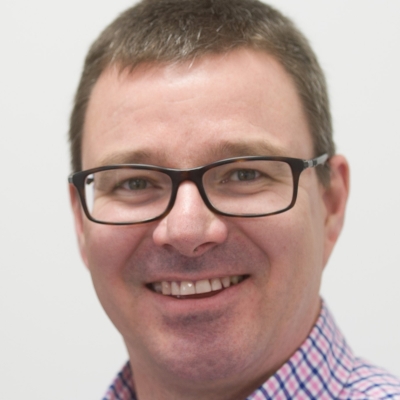
Professor David Bucknall, Heriot-Watt University, UK

Professor David Bucknall, Heriot-Watt University, UKProfessor Bucknall holds the Chair in Materials Chemistry at Heriot-Watt University (HWU). He received his PhD in polymers from Imperial College London, and was a postdoc researcher at the MPI for Polymer Research (Mainz, Germany), before taking up a position as senior scientist at the UK national neutron facility. He subsequently held academic faculty positions at Oxford University, UK, and Georgia Institute of Technology, USA before taking up his current position. His research interests are in areas associated with understanding the structure-property-processing relationship in polymers and composites. His current research includes the behavior in polymers and composites in harsh environments (including high pressure and temperature), functional adaptive materials, flexible electronics, energy harvesting, sustainable polymers and elastomer bio-recycling. He is founder and co-director of the HWU led Consortium on Plastics and Sustainability (COMPASS), which is applying multidisciplinary teams to understand and find solution to issues of the plastics circular economy. |
|
| 14:30 - 15:00 |
Circular economy plastics
Catalysis plays a central role in delivering the circular economy and is central to ensuring the future of plastics manufacturing and recycling is more sustainable. This lecture will discuss the development of selective and active catalysts and processes that deliver new classes of recyclable and/or degradable polymers. It will describe the transformation of waste by-products from existing manufacturing, such as carbon dioxide and citrus fruit peel (limonene oxide), to high performance thermoplastic elastomers, coatings or rigid plastics. It will also describe how to apply switchable catalysis to mixtures of monomers including lactide, carbon dioxide, anhydrides and epoxides to produce block sequence controlled and recyclable materials (elastomers/rigid plastics). The polymerization kinetics and selectivity will be described and a hypothesis to rationalize block enchainment from mixtures presented. Switchable polymerization catalysis will be demonstrated to be generally applicable to a range of catalysts and monomers. The lecture will close by identifying future research challenges to improve the sustainability of plastics. 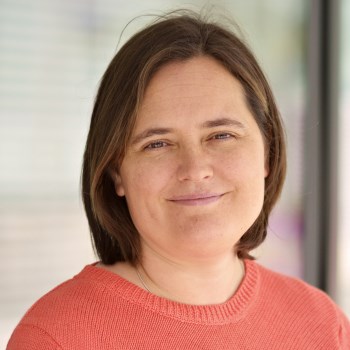
Professor Charlotte Williams FRS, University of Oxford, UK

Professor Charlotte Williams FRS, University of Oxford, UKCharlotte Williams (Department of Chemistry, Oxford University) researches catalysis that allow renewable resources to be used to make polymers, composites and fuels. Her research includes the development of homogeneous catalysts for polymerizations of plant-derived resources and carbon dioxide to deliver oxygenated polymers. She also investigates colloidal nanoparticle catalysts for the hydrogenation of carbon dioxide or syn-gas to methanol and dimethyl ether. She is the founder of econic technologies (econic-technologies.com) which commercializes catalysts for carbon dioxide/epoxide copolymerizations. Her work has been recognised by the RSC Corday Morgan Prize (2015) and the WISE Tech Start Up Award (2014). |
|
| 14:35 - 14:50 | Tea break | |
| 16:30 - 18:00 | Poster session |
Chair
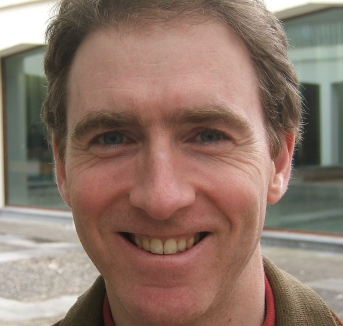
Professor Adrian Mulholland, University of Bristol, UK

Professor Adrian Mulholland, University of Bristol, UK
Adrian Mulholland’s research focuses on the investigation of mechanisms of biological catalysis, and biomolecular structure and function more generally, by computational modelling and simulation. His work has ranged from studies of drug resistance, including antimicrobial resistance, to biosynthesis, synthetic biology, enzyme engineering and thermoadaptation, to investigations of quantum tunnelling and protein dynamics in enzyme catalysis. A central theme in his research is the development and application of combined quantum mechanics/molecular mechanics (QM/MM) techniques, in particular for the investigation of enzyme-catalysed reaction mechanisms. He has a strong interest in the application of high performance computing (HPC), particularly for biomolecular simulations. Following work at ICI Pharmaceuticals, he obtained his D. Phil. with Prof. Graham Richards at Oxford, and then worked as a Wellcome Trust Fellow with Prof. Martin Karplus at Harvard. He is Head of Physical and Theoretical Chemistry at Bristol. He is Chair of CCP-BioSim (the UK Collaborative Computational Project for Biomolecular Simulation, ccpbiosim.ac.uk) and HECBioSim (the UK High End Computing Consortium for Biomolecular Simulation, hecbiosim.ac.uk), and of the UK CCP Steering Panel (see ccp.ac.uk).
| 08:00 - 08:30 |
Enzyme catalysed reactions for high-value applications
This lecture will describe recent work from our laboratory aimed at developing new biocatalysts for enantioselective organic synthesis, with emphasis on the design of in vitro and in vivo cascade processes for generating chiral pharmaceutical building blocks. By applying the principles of ‘biocatalytic retrosynthesis’ we have shown that it is increasingly possible to design new synthetic routes to target molecules in which biocatalysts are used in the key bond forming steps.
The integration of several biocatalytic transformations into multi-enzyme cascade systems, both in vitro and in vivo, will be addressed in the lecture. In this context monoamine oxidase (MAO-N) has been used in combination with other biocatalysts and chemocatalysts in order to complete a cascade of enzymatic reactions. Other engineered biocatalysts that can be used in the context of cascade reactions include w-transaminases, ammonia lyases, amine dehydrogenases, imine reductases, and artificial transfer hydrogenases. We shall also present recent work regarding the discovery of a new biocatalyst for enantioselective reductive amination and show how these enzymes can be used to carry out redox neutral amination of alcohols via ‘hydrogen borrowing’. 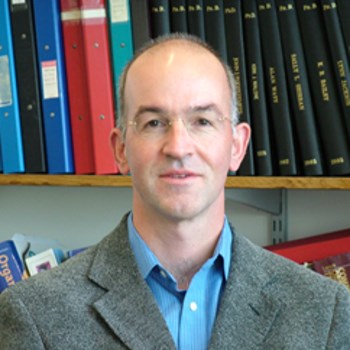
Professor Nicholas Turner, University of Manchester, UK

Professor Nicholas Turner, University of Manchester, UKNick Turner obtained his DPhil in 1985 with Professor Sir Jack Baldwin and from 1985-1987 was a Royal Society Junior Research Fellow, spending time at Harvard University with Professor George Whitesides. He was appointed lecturer in 1987 at Exeter University and moved to Edinburgh in 1995, initially as a Reader and subsequently Professor in 1998. In October 2004 he joined Manchester University as Professor of Chemical Biology where his research group is located in the Manchester Institute of Biotechnology Biocentre (MIB: www.mib.ac.uk). He is Director of the Centre of Excellence in Biocatalysis (CoEBio3) (www.coebio3.org) and also a co-founder and Scientific Director of Ingenza (www.ingenza.com), a spin-out biocatalysis company based in Edinburgh and more recently Discovery Biocatalysts. He is a member of the Editorial Board of ChemCatChem and Advanced Synthesis and Catalysis. His research interests are in the area of biocatalysis with particular emphasis on the discovery and development of novel enzyme catalysed reactions for applications in organic synthesis. His group are also interested in the application of directed evolution technologies for the development of biocatalysts with tailored functions. |
|
|---|---|---|
| 08:45 - 09:15 |
Biocatalytic recycling of plastic
The global production of plastics made from non-renewable fossil feedstocks has grown more than 20-fold since 1964. While more than eight billion metric tons of plastics have been produced until today, only a small fraction is currently collected for recycling and large amounts of plastic waste are ending up in landfills or in the oceans. Pollution caused by accumulating plastic waste in the environment has therefore become world-wide a very serious problem. Synthetic polyesters such as polyethylene terephthalate (PET) have widespread use in packaging materials, beverage bottles, foams, coatings, and fibers. Recently it has been shown that amorphous PET materials can be completely hydrolyzed by microbial enzymes at mild reaction conditions in aqueous media. Due to the restricted mobility of the polymer chains at ambient temperatures, an efficient biocatalytic degradation has to be performed close to the glass transition temperature of PET of about 70°C. Thermostable enzymes like those produced by actinomycete bacteria have therefore emerged as the most promising catalysts for the hydrolysis of PET to its monomeric building blocks. In a circular economy, the resulting monomers can be recovered and reused to manufacture novel PET again or other products without depleting fossil feedstocks. The enzymatic degradation of post-consumer plastic waste thereby represents an innovative, environmentally benign, and sustainable alternative to conventional chemical recycling processes. By the construction of powerful biocatalysts employing protein engineering techniques and an optimization of the bioprocess parameters, a biocatalytic recycling of PET can be further developed towards industrial applications. 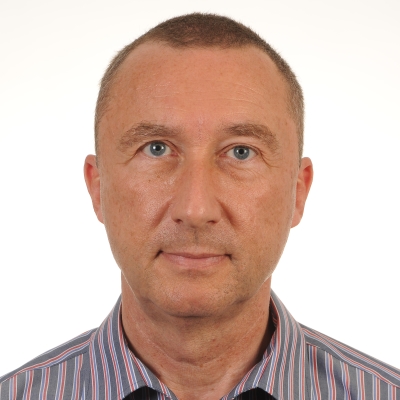
Professor Wolfgang Zimmermann, Leipzig University, Germany

Professor Wolfgang Zimmermann, Leipzig University, GermanyBorn 1953 in Heidelberg, Germany. Studied biochemistry, microbiology, and chemistry at the Medizinisch-Naturwissenschaftliche Hochschule Ulm and at the University of Heidelberg, receiving his Diplom degree in 1981 and doctorate in 1984 from the Universität Heidelberg. From 1985 to 1987 post-doctoral fellow in biochemistry at the University of Manchester, Institute of Science and Technology, UK. From 1988 to 1993 assistant professor and head of the Enzyme Technology Section at the Department of Biotechnology, Swiss Federal Institute of Technology in Zürich, Switzerland. From 1993 to 1999 Professor in Biotechnology at Aalborg University, Denmark and from 1999 to 2004 Professor and Chair in Bioprocess Technology at Chemnitz University of Technology, Germany. Since 2005 Professor and Chair in Microbiology and Bioprocess Technology, Universität Leipzig, Germany. |
|
| 10:00 - 10:30 |
Biocatalysis and biomass conversion: enabling a circular economy
Two of the grand societal and technological challenges of the twenty first century are the 'greening' of chemicals manufacture and the ongoing transition to a bio-based economy: that is a sustainable, carbon-neutral economy based on renewable biomass as the raw material. These challenges are motivated by the need to eliminate environmental degradation and mitigate climate change. Waste minimisation and waste valorisation in a circular economy constitute a point of overlap of these grand challenges. In a bio-based economy, ideally waste biomass, particularly agricultural and forestry residues and food supply chain waste, are converted to liquid fuels, commodity chemicals, and biopolymers by employing clean, catalytic processes. Biocatalysis has the right credentials to achieve this goal. Enzymes are biocompatible (sometimes even edible), biodegradable and essentially non-hazardous. Additionally, they are derived from inexpensive renewable resources which are readily available and not subject to the large price fluctuations which undermine the long term commercial viability of catalysts derived from scarce precious metals. Moreover, thanks to spectacular advances in molecular biology the landscape of biocatalysis has dramatically changed in the last two decades. Developments in (meta)genomics in combination with 'big data' analysis have revolutionised new enzyme discovery and developments in protein engineering by directed evolution have enabled dramatic improvements in their performance. These developments have their confluence in the bio-based circular economy. 
Professor Roger Sheldon FRS

Professor Roger Sheldon FRSRoger Sheldon is a recognised authority on green chemistry and catalysis and is widely known for developing the concept of E factors for assessing the environmental footprint of chemical processes. He is Professor Emeritus of Biocatalysis and Organic Chemistry of Delft University of Technology and Chief Executive Officer of CLEA Technologies. He is the author of several books on catalysis as well as more than 450 professional papers and 50 granted patents. His research interests are in the general area of green chemistry, (bio)catalysis and enzyme immobilisation. He has a PhD in organic chemistry from the University of Leicester (UK) and prior to joining Delft University, in 1991, he had more than 20 years industrial experience, as Vice President for Research and Development at DSM/Andeno from 1980 to 1990 and with Shell Research Amsterdam from 1969 to 1980. |
|
| 10:30 - 11:00 | Coffee | |
| 10:45 - 11:15 |
Cleaner NADH recycling for biocatalytic chemical synthesis
Enzymes are powerful catalysts for selective oxidation and reduction reactions, but one of the barriers to the scale-up of biocatalysis for bulk chemical transformations is the reliance of many of these enzymes on expensive nicotinamide cofactors, NADH or NADPH. The cost and complexity of these cofactors mean that they must be continuously recycled during chemical transformations. Recycling of the reduced cofactors is typically achieved using glucose as a sacrificial oxidant (hydride donor), generating substantial carbon-based waste. This talk will explore alternative, cleaner possibilities for recycling the reduced cofactors for reductive chemical synthesis, using hydrogen gas or electrochemical processes as the reductant for NADH or NADPH. Further, we show that immobilisation of the cofactor recycling system, together with the enzyme of interest, on a solid support offers advantages for scale-up and re-use of biocatalysts in batch reactors, and possibilities for implementing biocatalysis in continuous flow reactors. Developments in these areas will be critical in enabling biocatalysis to move beyond the small-volume, fine chemicals sector so that enzymes can play a significant role in circular transformations of commodity chemicals in a sustainable future economy 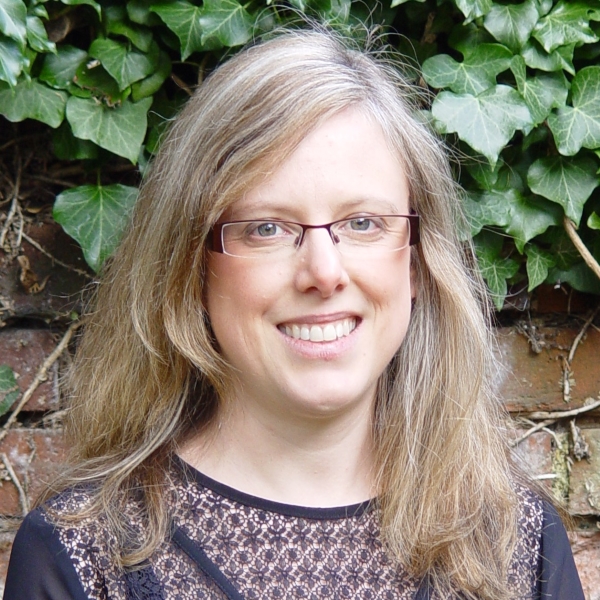
Professor Kylie Vincent, University of Oxford, UK

Professor Kylie Vincent, University of Oxford, UKKylie Vincent is Professor of Inorganic Chemistry, and Fellow of Jesus College Oxford at the University of Oxford. Her research interests include mechanistic studies of small-molecule activation in metalloenzymes, and new ways of applying biocatalysis in chemical synthesis. She is a graduate of the University of Melbourne, Australia (BA/ BSc (Hons), PhD) and has worked in Oxford since 2002 when she joined the group of Fraser Armstrong as a postdoctoral researcher and an RJP Williams Junior Research Fellowship at Wadham College. In 2007 she took up a Royal Society University Research Fellowship and was appointed as Associate Professor in 2013 and Professor in 2017. Her team won the Royal Society of Chemistry’s Emerging Technologies competition in 2013 for development of HydRegen, a platform technology for hydrogen-driven biocatalysis, and she won the Clara Immerwahr Award for Excellence in Catalysis Research in 2012 and was named Woman of the Future in Science and Technology in 2011. |
Chair
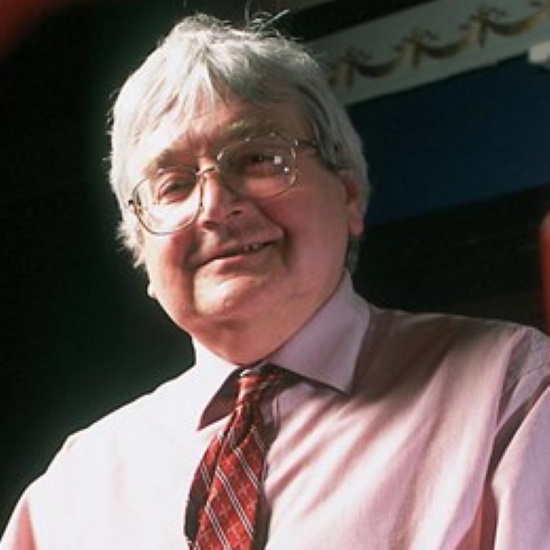
Sir Richard Catlow FRS, Cardiff University and University College London, UK

Sir Richard Catlow FRS, Cardiff University and University College London, UK
Richard Catlow is developing and applying computer models to solid state and materials chemistry: areas of chemistry that investigate the synthesis, structure and properties of materials in the solid phase. By combining his powerful computational methods with experiments, Richard has made considerable contributions to areas as diverse as catalysis and mineralogy. His approach has also advanced our understanding of how defects (missing or extra atoms) in the structure of solids can result in non-stoichiometric compounds. Such compounds have special electrical or chemical properties since their contributing elements are present in slightly different proportions to those predicted by chemical formula. Richard’s work has offered insight into mechanisms of industrial catalysts, especially involving microporous materials and metal oxides. In structural chemistry and mineralogy. Simulation methods are now routinely used to predict the structures of complex solids and silicates, respectively, thanks to Richard’s demonstrations of their power. Richard was Foreign Secretary of the Royal Society from 2016 until 2021. He has for many years been involved in the exploitation of High Performance Computing in Modelling Materials.
| 12:30 - 13:00 |
Environmental aspects of the circular economy
The concept of circular economy has emerged in response to the need for decoupling the economic growth from resource consumption and environmental impacts. Aiming to maximise resource efficiency, it represents an alternative to the current linear ‘take-make-use-dispose’ economic model. The circular economy concept rests on three fundamental principles: i) preserving and enhancing natural capital; i) circulating products and materials at the highest utility as long as possible; and iii) designing out negative externalities. Therefore, transitioning to a circular economy will require a systemic change across supply chains, involving both technological and business model innovations. This in turn will necessitate a whole systems approach and life cycle thinking to capture and address the complex interrelationships between different aspects of a circular economy. One of the complexities is that ‘circular’ does not necessarily mean ‘sustainable’. Hence, we need to be able to understand the full implications of a switch from the ‘linear’ to ‘circular’ economic models. Focusing on environmental impacts of that switch, this presentation will discuss how we can measure the ‘circularity’ on a life cycle basis and what that may mean in practice, considering examples in the food, energy and plastics sectors. 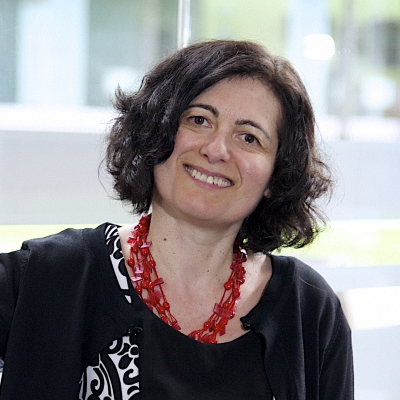
Professor Adisa Azapagic, The University of Manchester, UK

Professor Adisa Azapagic, The University of Manchester, UKAdisa Azapagic is Professor of Sustainable Chemical Engineering at the University of Manchester where she leads the Sustainable Industrial Systems group. The main aim of her research is to help identify sustainable solutions for industrial systems on a life cycle basis, taking into account economic, environmental and social aspects. Adisa is the founding Editor-in-Chief of Sustainable Production and Consumption and Editor-in-Chief of Process Safety and Environmental Protection, both published by Elsevier on behalf of the IChemE. She was a recipient of the IChemE Award for Outstanding Achievements in Chemical and Process Engineering and the GSK/CIA Innovation Award for masterminding the CCaLC carbon footprinting tool for industry. |
|
|---|---|---|
| 13:15 - 13:45 |
Biocatalysis: we create chemistry for a sustainable future - with a little help from enzymes!
In the last decades the application of enzymes for enantioselective syntheses has made its way to industrial use. BASF has led this development with its Chipros® product line of chiral intermediates with a particular focus on chiral amines. However, the horizon for enzymatic catalysis is now reaching beyond pharma intermediates. Biocatalysis application reaches to volume chemicals with a much larger leverage on resource efficiency. Opportunities to combine enzyme catalysis with renewable feed-stock are even greater. A carefully balanced view on how enzyme catalysis can support a circular economy and can actually lead to a more sustainable industry will be given. 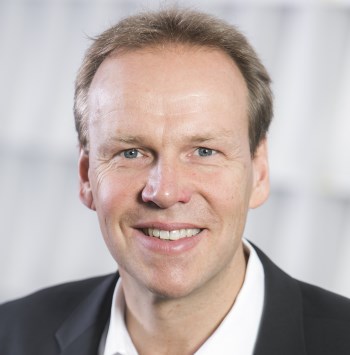
Dr Kai Baldenius, BASF SE, Germany

Dr Kai Baldenius, BASF SE, GermanyKai Baldenius is a chemist by formation. After receiving a PhD from Hamburg University, he spent a post-doc research year at The Scripps Research Institute before he joined BASF in 1993. In BASF Kai started his career in the central research doing process development work for vitamins and other fine chemicals. He took over responsibilities in production, marketing and sales, before he returned to research. Since 2009, Kai heads the BASF biocatalysis research group. |
|
| 14:30 - 15:00 |
Chemistry and catalysis: key tools for a circular economy
In the past two centuries, science and engineering provided the basis for the development of new technologies, which dramatically improved the life of mankind all over the world. In this respect, chemistry and catalysis significantly contributed to better health, more food, clean water, new materials and so on. Nevertheless, despite these developments, still we face significant problems in the coming years. In this context, the sustainable use of resources and especially the reduction of fossil-based feedstocks are key issues. In the talk, the importance of chemistry and specifically catalysis for achieving a circular economy will be explained. Necessary catalytic advancements will be discussed for case studies such as the valorization of carbon dioxide for fuel production and chemical synthesis. Next to this, the presentation will give some insight on the potential of nanotechnology-derived catalysts and molecularly-defined catalyst systems for sufficient and sustainable supply of energy. 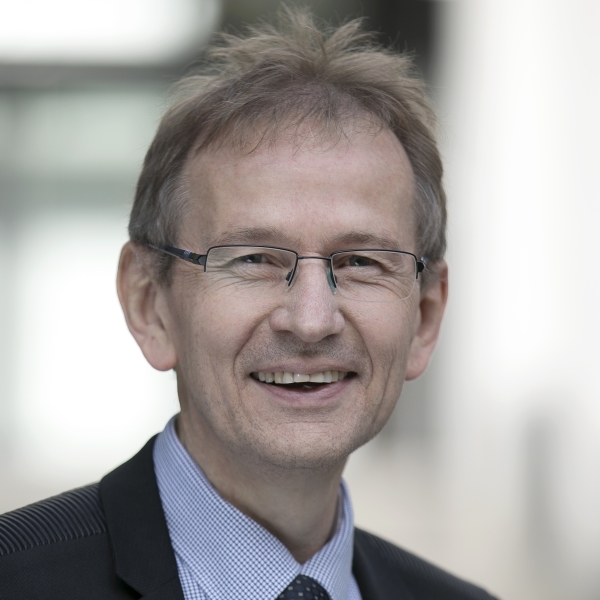
Professor Matthias Beller, Leibniz Institute for Catalysis, Germany

Professor Matthias Beller, Leibniz Institute for Catalysis, GermanyMatthias Beller studied chemistry at the University of Göttingen, where he completed his PhD thesis in 1989. As recipient of a Liebig scholarship he then spent a one-year with Sharpless at MIT. Afterwards he worked in industry until 1995, when he moved to the TU of Munich as Professor for Inorganic Chemistry. In 1998, he relocated to Rostock to head the Institute for Organic Catalysis, which became in 2006 the Leibniz-Institute for Catalysis. The work of his group has been published in more than 900 original publications, reviews and more than 130 patent applications have been filed / H-index: 124. Matthias Beller was honoured with a number of awards including the Otto-Roelen Medal, the Leibniz-Price and the German Federal Cross of Merit. Besides, he received the first European prize for Sustainable Chemistry, the Paul N Rylander Award of the Organic Reaction Catalysis Society of the USA, the Gay Lussac Alexander von Humboldt Prize of the French Academy of Sciences and the Emil Fischer Medal of the German Chemical Society. He was awarded an honorary doctoral degree from the University of Antwerp and of the University of Rennes 1. He received the Wöhler price for Sustainable Chemistry from the German Chemical Society and an ERC Advanced grant from the European Commission. In 2017, Matthias Beller was awarded the Karl Ziegler Prize from the German Chemical Society and the Karl Ziegler Foundation, one of the highest honors in the field of chemistry in Germany. He has received as the first European chemist with the ACS Catalysis Award Lectureship. Last year, Beller was selected as the prestigious “Hassel Lecturer” from the University of Oslo and for the “Gordon Stone Lectureship” of the University of Bristol as well. Beller is Vice President of the Leibniz Society and member of the German National Academy of Science Leopoldina and three other Academies of Sciences. |
|
| 15:00 - 15:30 | Tea | |
| 15:00 - 15:30 |
Title TBC
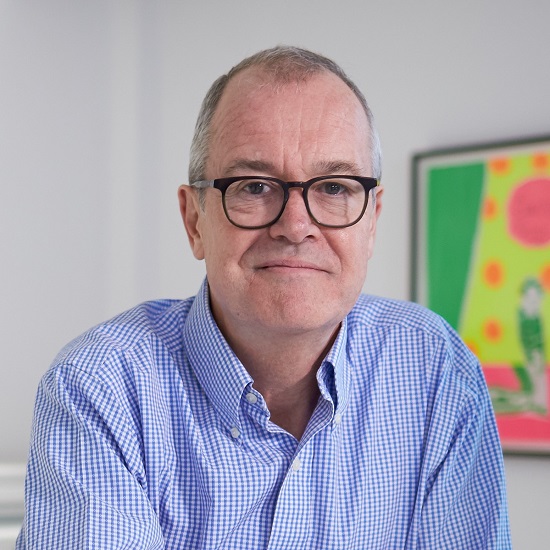
Sir Patrick Vallance FMedSci FRS, Government Chief Scientific Adviser and Head of Government Science and Engineering Profession, UK Government

Sir Patrick Vallance FMedSci FRS, Government Chief Scientific Adviser and Head of Government Science and Engineering Profession, UK GovernmentSir Patrick Vallance is the UK Government Chief Scientific Adviser, National Technology Adviser and Head of the Government Science and Engineering profession. Previously, Patrick worked at GSK where he started in 2006 as Head of Drug Discovery, before becoming Senior Vice President, Medicines Discovery and Development and subsequently President, R&D at GlaxoSmithKline until 2017. Prior to this, Patrick was a clinical academic, Professor of Medicine and led the Division of Medicine at UCL. He has over 20 years’ experience of basic and clinical research. His personal research was in the area of diseases of blood vessels and endothelial biology. |
|
| 15:30 - 16:00 | Panel discussion |
